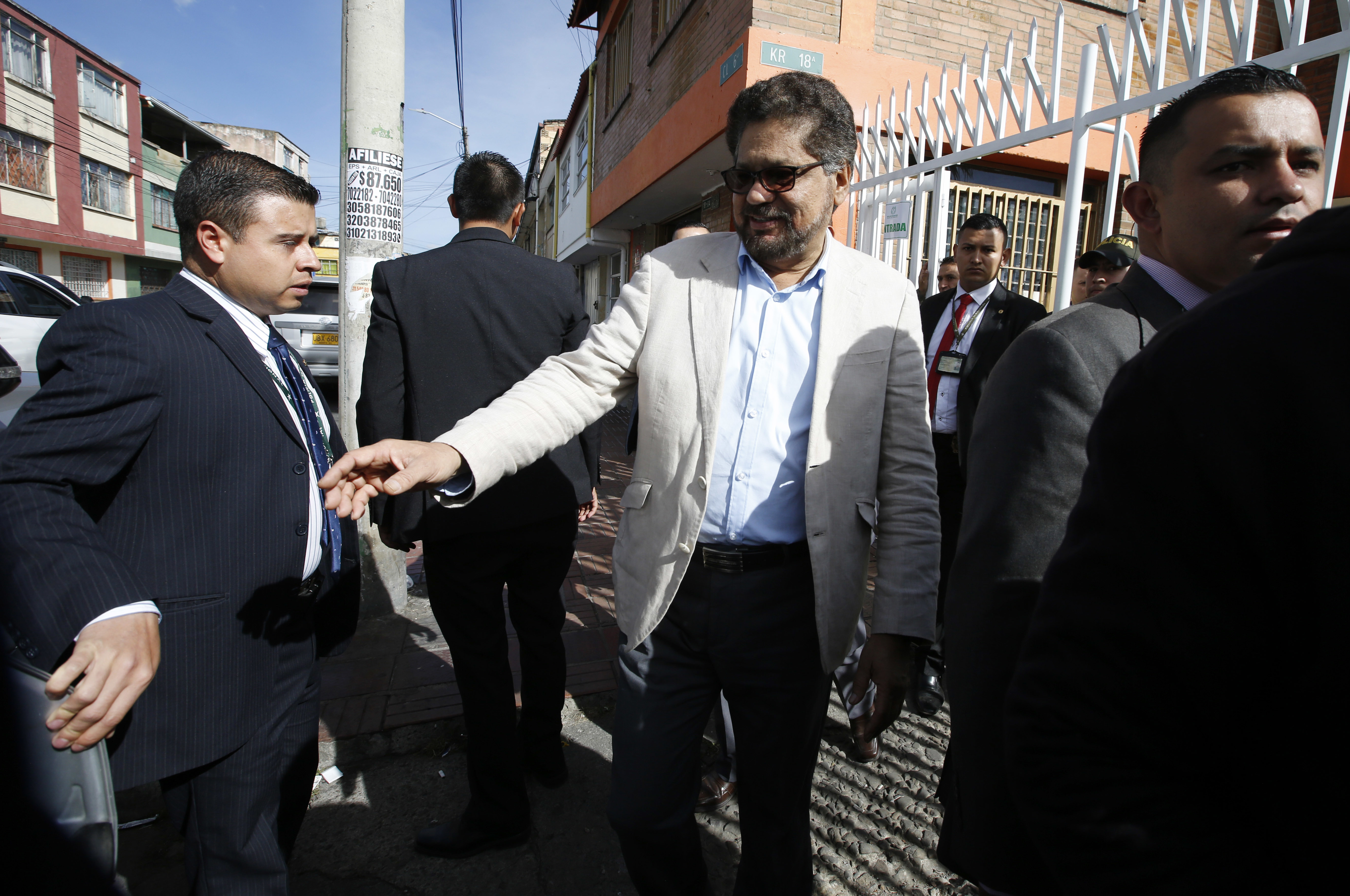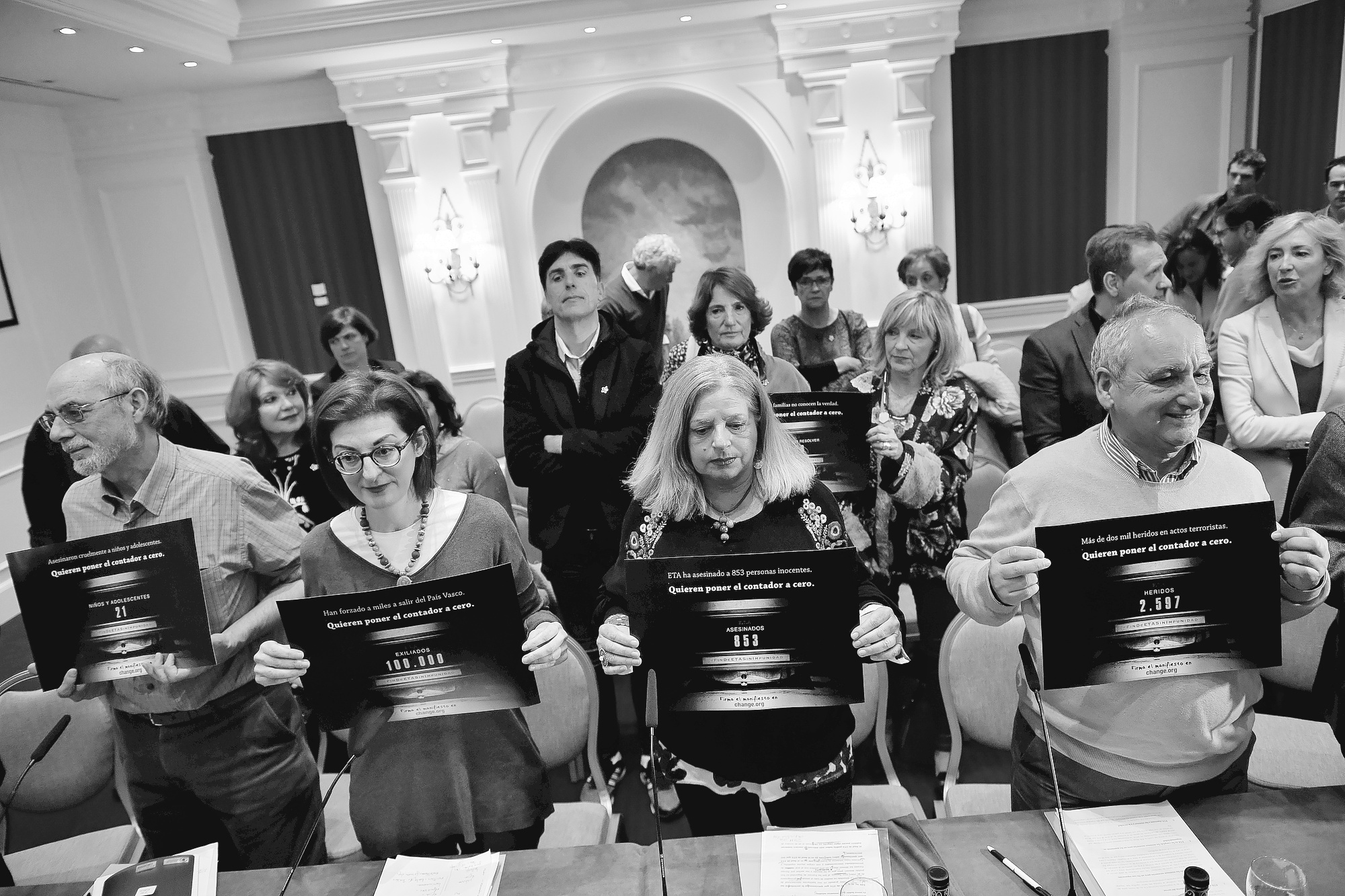
By MANUEL RUEDA
Associated Press
BOGOTA, Colombia (AP) — Colombia’s former leftist guerrillas faced their first electoral challenge as a political party Sunday in congressional voting that also measured the strength of the country’s main political factions two months before presidential elections. Analysts see the balloting for the Senate and House of Representatives as a test of the democratic viability of the political party that emerged from the Revolutionary Armed Forces of Colombia, which fought the state for 52 years until a historic peace deal in 2016.
The new party has the same Spanish initials as the rebel group: the FARC.
“I think this is a crucial moment for Colombia,” said Pablo Catatumbo, a former rebel commander who is now a Senate candidate for the FARC, after casting his ballot in Bogota. “It’s the first time in my life that I have voted and I am doing so for the sake of peace,” the 64-year-old said. But Leon Valencia, a former combatant who now directs the Peace and Reconciliation Foundation think tank, said, “The FARC are in a tough position.”
“If they get a low turnout, as is expected, their congressmen will be shunned. They will not be seen as true representatives of the people,” said Valencia, referring to the fact that the FARC is guaranteed 10 seats in congress under the terms of the peace deal that ended more than a half century of brutal conflict. Casting a shadow over the FARC’s political ambitions is the recent withdrawal of its presidential candidate for health reasons.
Former rebel leader Rodrigo Londono, more commonly known by nom-de-guerre Timochenko, underwent successful heart surgery last week and earlier suffered a stroke. The ex-rebels have also expressed fears of irregularities in the electoral process and difficulties
accessing campaign funds. Some of Londono’s campaign stops were met with protests. The FARC’s leaders have said that despite these “obstacles” they hope to prove they have a future in Colombia’s political landscape.
“There are parts of the country where people support us,” Catatumbo earlier told Colombia’s Caracol Radio. “In many regions of the country we have been received enthusiastically, with horse parades and motorcycle shows.” Opinion polls and political analysts, however, suggest the composition of Colombia’s congress will not change drastically with the former rebels receiving little support. Center-right parties, whose lists are stacked with regional electoral barons, are expected to take around 60 percent of the seats.
The Peace and Reconciliation Foundation says that 65 politicians tied to corruption scandals could win seats because of their ability to buy votes in rural and impoverished areas.
“This election will help us to measure just how much politics has changed in Colombia,” Valencia said. Sunday’s election also included two presidential primaries, one for leftist candidates and another for candidates backed by conservative movements.
A shortage of primary ballots at some polling places led to protests in several cities, with some voters shouting that fraud was taking place. Candidates urged their supporters to stay at voting centers until authorities fixed the ballot shortages. Colombia’s National Registrar Juan Carlos Galindo said the shortage was caused by funding problems and he said voting stations across the country had been authorized to use photocopies of ballots, to enable voters to cast their vote in the primaries.
Gustavo Petro, a former mayor of Bogota who was a guerrilla fighter in his youth, is widely expected to win the leftist primary. The conservative primary will likely be won by Ivan Duque, a pro-business candidate and close ally of former President Alvaro Uribe, who has criticized Colombia’s government for giving too many legal and political benefits to former rebels.
Petro is a fiery orator running on an anti-establishment platform and currently leads presidential polls with support hovering around 25 percent. He has promised to make Colombia less dependent on oil and mining exports. But polls in Colombia can be unreliable.
Presidential elections will take place in Colombia on May 27, but there is a crowded field of candidates and pollsters doubt that any of them will garner enough votes to win the race outright. The most likely scenario is a runoff in which Petro would face a conservative or centrist candidate.



















